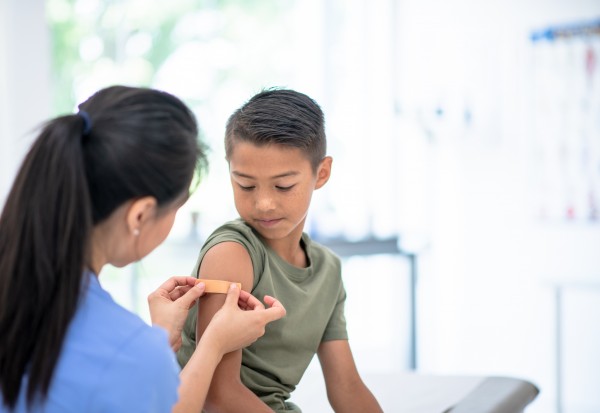As the COVID-19 response evolves, vaccine requirements, sometimes referred to as mandates, are increasingly being used as a tool to improve vaccine uptake. Vaccine requirements, especially when used in specific settings such as the workplace or healthcare facilities, are a long-standing and proven public health strategy for increasing vaccination coverage and decreasing the incidence of morbidity and mortality associated with vaccine-preventable diseases, such as COVID-19. One main way in which vaccine requirements are being utilized is through the Biden Administration’s COVID-19 action plan which outlines vaccination requirements for the following groups:
- Employers with 100 or more employees are to require vaccination or ensure weekly negative tests for unvaccinated employees;
- Healthcare workers at Medicare and Medicaid participating hospitals and health care facilities; and
- Federal workers and contractors that do business with the federal government.
In addition to the COVID-19 vaccines that are authorized and recommended for use in the United States (Moderna, Pfizer, and Janssen), some individuals may have been vaccinated for COVID-19 through a clinical trial in which the vaccine has not yet been approved in the U.S. For the purposes of vaccine requirements, it’s important to understand how to determine if a person who has been vaccinated through one of these trials is considered fully vaccinated. To do so, the Centers for Disease and Control and Prevention (CDC) has issued interim guidance for those who have been vaccinated as part of a clinical trial for a COVID-19 vaccine that is not currently approved or authorized by the Food and Drug Administration (FDA). Current CDC guidance is below.
A person vaccinated against COVID-19 as part of a clinical trial in the U.S. is considered fully vaccinated:
- Two weeks after receiving the full vaccination series AND
- The vaccine given is confirmed to have been an active vaccine, not a placebo dose AND
- The vaccine is listed for emergency use by the World Health Organization (currently the AstraZeneca COVID-19 vaccine meets these criteria) OR
- The vaccine efficacy has been independently confirmed (currently the Novavax COVID-19 vaccine meets these criteria)
As always, please reference CDC and FDA for the most current information regarding which COVID-19 vaccines have been approved in the United States. For additional information and resources, please see the relevant links below.
Biden Administration’s COVID-19 action plan
Different COVID-19 Vaccines | CDC
Interim Clinical Considerations for Use of COVID-19 Vaccines | CDC
COVID-19 Workplace Safety: Guidance for Federal Contractors and Subcontractors




